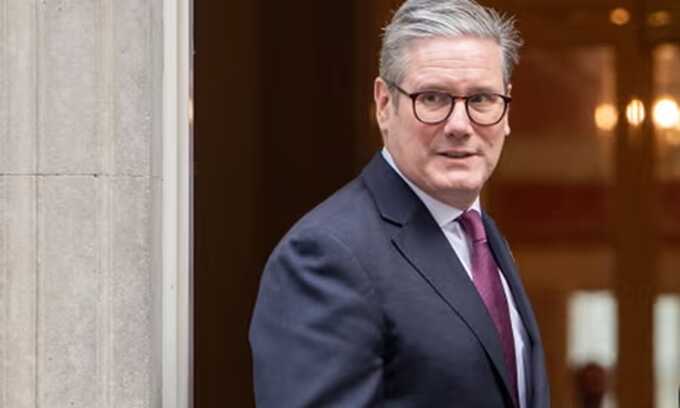Starmer is expected to eventually apologize and provide compensation to former colonies

The foreign minister of the Bahamas has suggested Sir Keir Starmer and David Lammy will ‘come around’ to offering reparations for the impact of the slave trade.
Frederick Mitchell said the British government should be open to a discussion around reparatory justice for countries in the Caribbean, though it may not initially focus on financial compensation.
Speaking on BBC Radio 4’s Today programme, he referenced the Prime Minister’s background as a human rights lawyer and the Foreign Secretary’s past comments in support of reparations.
Mitchell said: ‘Given Sir Keir’s work before he became Prime Minister, given Mr Lammy’s position before he got this job that he has now, they bring their individual consciences to this job and eventually I think they’ll come around to the position.’
Sir Keir stared down calls for the UK to pay for its historical involvement in the slave trade ahead of a summit in Samoa, insisting the Commonwealth should instead be ‘facing forward’ together.
Tackling issues like climate change is more pressing ‘here and now’ to Commonwealth nations, the PM said.
He also appeared unphased that leaders of some of the association’s major players – India and South Africa – were prepared to snub the Commonwealth Heads of Government Meeting (Chogm) to attend a separate summit alongside Vladimir Putin.
As Sir Keir arrives for the gathering, he has faced questions about financial reparations to Caribbean countries because of Britain’s historical part in the trans-Atlantic slave trade.
All three candidates standing to be the next secretary general of the Commonwealth have backed these calls.
Sir Keir’s official spokesman has said such discussions are ‘not on the agenda’ for the Commonwealth meeting, whose member states are largely made up of territories once belonging to the British Empire.

Fred Mitchell has spent 13 years as the foreign minister of the Bahamas (Picture: Getty)
While travelling to the summit, the Prime Minister was asked by reporters what message his refusal to discuss reparations sent to other Commonwealth countries.
He told reporters: ‘On the question of which way we’re facing, I think we should be facing forward.
‘I’ve talked to a lot of our Commonwealth colleagues in the Commonwealth family and they’re facing real challenges on things like climate in the here and now.’
Sir Keir said other nations in the association were more interested in raising cash to tackle the impact of climate change.
‘That’s where I’m going to put my focus rather than what will end up being very, very long endless discussions about reparations on the past,’ he added.
The Prime Minister said there was ‘no question’ that slavery was ‘abhorrent’, adding: ‘But I think from my point of view and taking the approach I’ve just taken, I’d rather roll up my sleeves and work with them on the current future-facing challenges than spend a lot of time on the past. That’s my focus.’
Appearing on the Today programme on Wednesday, Labour MP Bell Ribeiro-Addy said it was ‘extremely disrespectful’ of the government to try and dictate the terms of the conversation around the issue.
She said: ‘The idea that the UK still has that kind of veto reeks of the colonialism that people are still seeking some sort of resolution to.’
As India and South Africa’s leaders attend the BRICS summit in Kazan, Russia, alongside Mr Putin, Sir Keir was asked if he was worried the Commonwealth appeared the weaker of two groups of gathering nations.
‘I do think the Commonwealth is really important,’ he said.
He described Chogm as ‘an incredible opportunity’ to discuss growth and trade.
Asked if he was sad that other Commonwealth leaders were at the BRICS summit instead, Sir Keir replied: ‘Look, that’s a matter for them as to where they attend.’
Read more similar news:
Comments:
comments powered by Disqus































